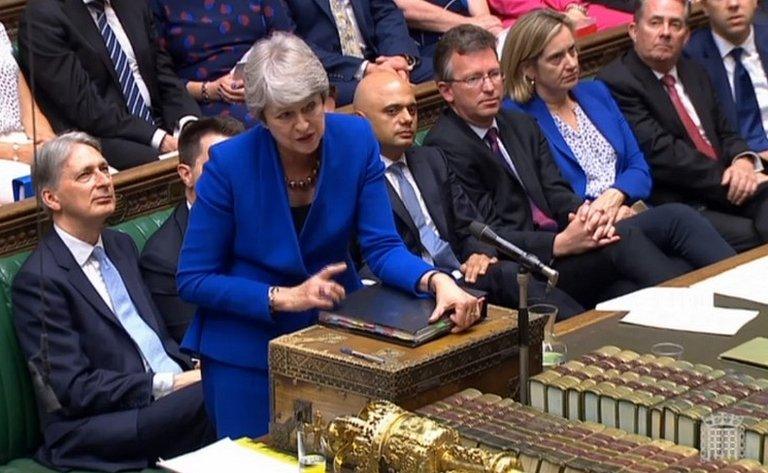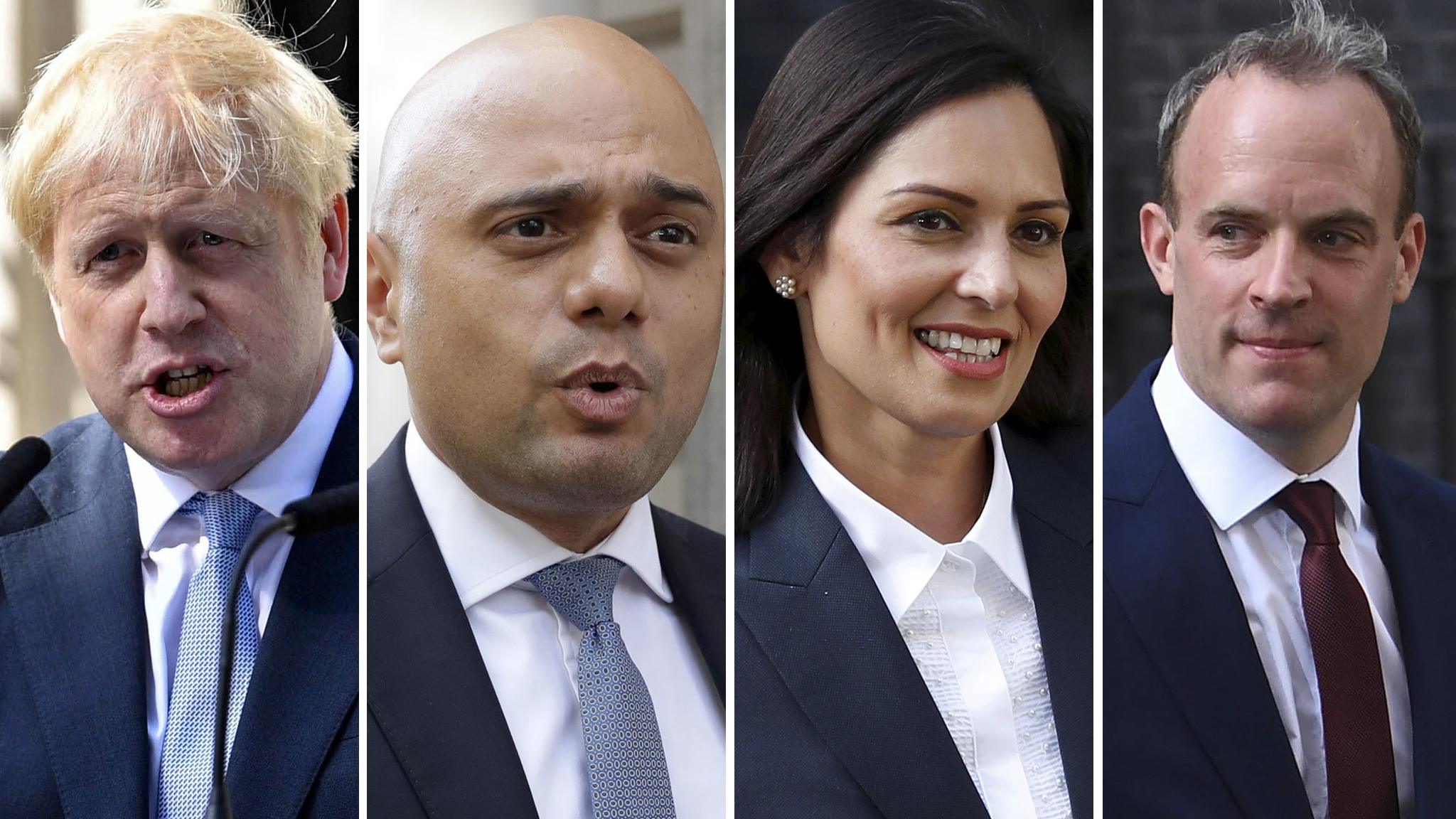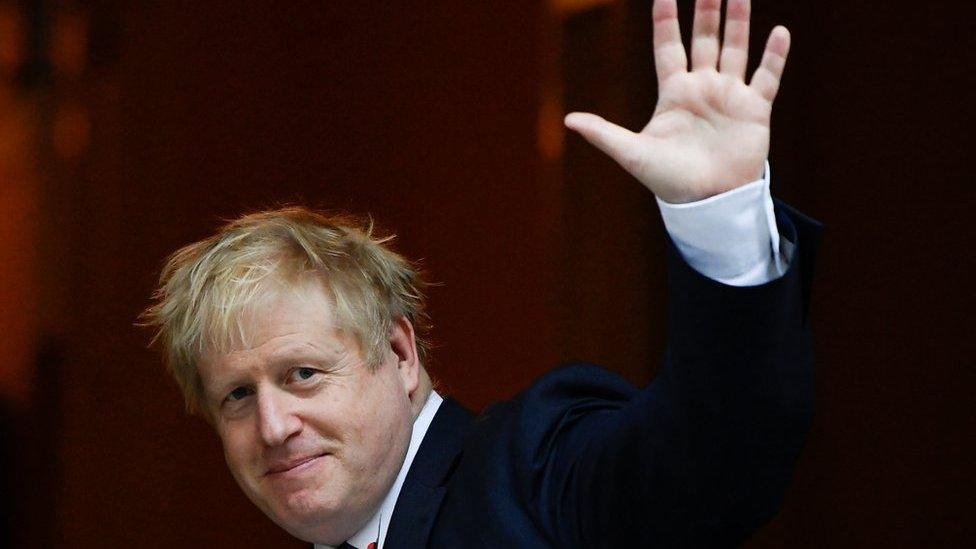PMQs verdict: Theresa May's final turn at the dispatch box
- Published

The last Prime Minister's Questions of a premier's tenure tends to be a friendlier affair than normal, filled with tributes and good wishes.
But while many backbenchers delivered bouquets, there was still a chance for some brickbats during Theresa May's final outing at the dispatch box - which came to a record breaking 63 minutes.
The headline act was the head-to-head between her and Jeremy Corbyn.
The Labour leader did begin by paying tribute to the outgoing prime minister's "sense of public duty", saying that public service should "always be recognised", along with the "huge responsibility and pressure" it places on loved ones.
But the niceties did not last long, as he listed services that he said had declined during her time as leader - including an increase in child poverty, higher use of food banks and a decrease in police numbers.
Mrs May responded, saying she "measured her record in the opportunity of every child who is now in a better school, in the comfort of every person who now has a job for the first time in their life, in the hope of every disadvantaged young person now able to go to university and it is in the joy of every couple who can now move into their own home".
The Labour leader praises Theresa May's commitment to public service
The pair had a brief moment of agreement, when discussing how politics was about "real life" and the decisions that "affected the lives of people up and down this country", rather than arguments in the Commons.
But soon the leaders returned to contentious subjects.
In an exchange on Brexit, it felt like a re-run of the past few months, but then - a slight change of tack.
Mr Corbyn then welcomed a number of policies brought in by Mrs May's government, including rules on fixed odds betting terminals and the children's funeral fund - a legacy Mrs May said she was "proud" of.
But the leader of the opposition pointed out they had all been pledges made by his party - not hers.
There was still time for Mrs May to get her own back though.
She began by making a point in a conciliatory tone, saying while they had their different approaches to politics, "what I think we both have in common is a commitment to our constituencies".
But Mrs May concluded their last exchange with: "As a party leader who has accepted when her time was up, perhaps the time is now for him to do the same."
Theresa May asks Jeremy Corbyn if his time as leader might also be up
Successor's views
From question one, the outgoing Conservative leader faced a barrage of questions - and insults - about her successor, Boris Johnson.
Mr Corbyn questioned his lack of "mandate"; the leader of the SNP in Westminster, Ian Blackford, referred to him as "flagrant", and Labour MP Kevin Brennan called him a "saboteur" of the government.
Labour's Ruth Cadbury asked Mrs May how she felt about "handing over to a man who, among many things, is happy to demonise Muslims, is prepared to check our loyal public servants and diplomats under a bus, and promises to sell our country out to Donald Trump and his friends?"
The PM said she believed Mr Johnson would offer the country "a bright future" and she was "pleased" to hand over to him.
She did not leap on the opportunity provided by Tory backbencher Keith Simpson to give "one real hard piece of advice... on being prime minister" to Mr Johnson, except recommending her colleague's summer reading list.
But she did join him in his praise for MPs' husbands, wives and partners, which he called the "unsung heroes".
Mrs May added: "I am very pleased to be able to see my husband in the gallery today."
Thanks and praise
MPs from across the House took the more traditional route of thanking her for issues she had focused her efforts on while in No 10.
Conservative former minister Patrick McLoughlin said Mrs May had "got the economy on a sound footing".
Labour's Vernon Coaker praised the "phenomenal work" she had done on tackling modern slavery.
And Tory Helen Grant said she had been a "great champion of victims of domestic violence", directing "millions of pounds" into fighting the crime.
Charles Walker - the co-chair of the Tory's backbench 1922 committee - also described her as a "good egg" for her work on mental health.
'Be true to yourself'
Finally, Mrs May was thanked for furthering the cause of women in Parliament as only the second ever female prime minister in No 10.
New Lib Dem leader - and yes, herself a woman - Jo Swinson, said seeing women in positions of power, including the PM, was an "inspiration" to young girls growing up in her constituency.
She said: "Can I ask the prime minister what advice she has for women across the country on how to deal with those men who think they could do a better job but are not prepared to do the actual work."
Mrs May replied: "My advice to all women is be true to yourself, persevere, keep going and be true to the vision you are working for."
And she pointed out to Labour they were the last party in the Commons to have not had a female leader.
Theresa May says Labour is the notable exception when it comes to female leaders
Mother of the House and Labour MP Harriet Harman added a thoughtful tribute to Mrs May, saying "even her harshest critics must recognise her integrity and commitment".
But she did offer a final word of "sisterly advice" - "sometimes you just have to be a bit more careful when a man wants to hold your hand".
So, after answering more than 4,500 questions, spending over 140 hours at the dispatch box, and with the offer of a walking holiday in Northern Ireland in her back pocket, Mrs May bid an emotional farewell to the Speaker and the House of Commons to a standing ovation - at least from her own benches.
As she left the chamber for the last time as prime minister, Theresa May was cheered by members across the House
- Published22 July 2019

- Published23 July 2019
- Published13 December 2019
